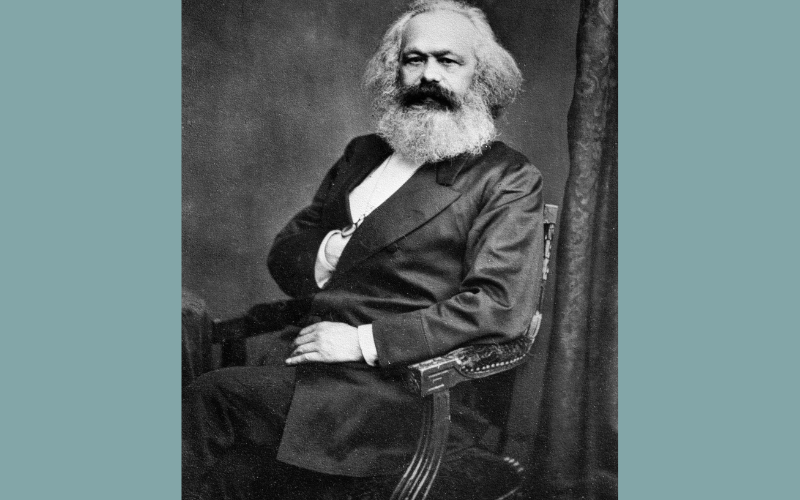As I make my way through Paul Kengor’s wonderful book The Devil and Karl Marx, numerous things stand out about the father of communism. It’s not an exaggeration to say that it’s hard to imagine a more wretched human being than Karl Marx.
It was almost as if all of the worst traits of humanity were bundled into this one spiteful man, who then constructed a philosophy based on his own bitterness and self-loathing.
He was lazy but greedy, always begging for money from family and friends who feared for his happiness and sanity. Marx didn’t seem to notice or care. They were simply a means to an end for him. He was so self-centered one wonders if he was on the spectrum. His lechery and drunkenness are well chronicled. But what really struck me is that Marx was a total slob.
Here is how he was described in a Prussian police report circa 1850:
Washing, grooming, and changing his linens are things he does rarely, and he likes to get drunk…He has no fixed times for going to sleep or waking up….everything is broken down… . In a word, everything is topsy-turvy. To sit down becomes a thoroughly dangerous business.
As someone of German ancestry, I can attest that this type of slovenliness is not a typical trait of Germans, then or now. Germans tend to pride themselves on their cleanliness.
Not Marx. And like his home, which was filthy, disordered, and disheveled, so was Marx’s corporeal body. He stunk badly and suffered from boils head to toe, including on his genitals. (The historian Paul Johnson offers a vivid description in his magnificent book The Intellectuals, but I’ll spare you that.)
At one point, Marx joked to his partner Friedrich Engels that he had become “the object of plagues just like Job, though I am not as God-fearing as he was.”
I bring all this up for a reason.
Marx was devising a system for living that had universal ambition. His manifesto demanded “a massive change” in human nature in its quest to achieve the secular righteous goal of “establish[ing] the truth of this world.” (One can old wonder if such lines were what Marx’s father had in mind when he chided his son, who “every week or two discovers a new system.”)
But for all his grand words, and all his grandiose visions for humankind, Marx could not even manage his own home. His own health. His own life.
I don’t wish to minimize these tasks.
Managing one’s own life is not as easy as it sounds. Sometimes it feels as if there are a 1,000 hurdles in front of us that prevent us from living the life we want, and twice as many pitfalls. But jumping those hurdles, and learning how to avoid the pitfalls, is the path to individual growth. And that is the path to a better world.
Twenty-five hundred years before Marx was born, the Greek philosopher Plato offered better advice than the communist philosopher: fix yourself first.
Jordan Peterson has expounded on this idea more recently, advising that if someone wants to improve his own life—and the world—he should start by cleaning his room.
“If you can’t even clean up your own room, who the hell are you to give advice to the world?” Peterson asks.
It’s advice Karl Marx would have benefited from. But I don’t think he would have been capable of heeding it.
One of the things I notice in Kengor’s book is that Marx received a lot of good advice from people who loved him, and worried about him. His father wrote a touching (and prophetic) letter to his son telling him he worried about his ability to find happiness.
“Will you ever—and that is not the least painful doubt of my heart—be capable of truly human, domestic happiness?” Heinrich Marx asked his son.
Karl’s response was to ask his father for more money.
—
This article is reprinted from FEE.org where it appeared under a Creative Commons (CC BY 4.0) license. It first appeared on the author’s Substack.
Image credit: Public domain


















